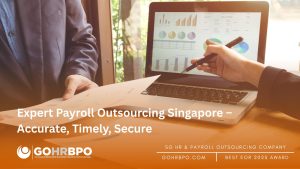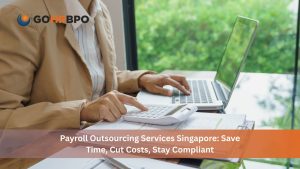Hey, fellow Singaporeans and residents! Today, we are going to discuss what might well be one of the most significant or crucial topics in anyone’s life who stays and works in our busy city-state: the Central Provident Fund, or CPF. Be it a local for the whole lifetime or a new arrival on our shores, knowledge regarding the CPF is key to planning your financial future in Singapore.
What’s the Central Provident Fund?
But first, let’s take a quick peek at what the CPF is all about. A bit like a teaser, before we discuss eligibility. The Central Provident Fund is Singapore’s complete social security system. It’s meant to be an integral component for saving for retirement, healthcare, and housing needs. Hence, it’s very much like a ‘forced savings plan’ with pretty sweet benefits!
Also Read:- Complete Central Provident Fund Guide for Foreign Workers in Singapore
Central Provident Fund: Who Are Eligible?
Now, let us move forward with the real issue: who can avail of the Central Provident Fund? Fortunately, the CPF system is widely inclusive of a variety of occupations that exist within Singapore.
Singapore Citizens and Permanent Residents
If you happen to be a Singapore citizen or permanent resident (PR), great news for you! Automatically, you would fall under the category of persons eligible to make CPF contributions. In fact, it is compulsory for you to participate in the CPF scheme once you get employed. This means that you and your employer will be making contributions to your respective CPF accounts.
Foreign Workers on Work Passes
Now, what happens to foreigners working here? If you’re a foreigner on a work pass-or Employment Pass, S Pass, or Work Permit- you do not have to contribute to the CPF. However, your employer is not off the hook; they still have to make CPF contributions for their local employees.
Self-Employed Persons
For all the freelancers and entrepreneurs-out there are self-employed Singapore citizens or PRs, you have to make contributions to your MediSave account, which is part of the CPF umbrella, to ensure you’re covered for health-care expenses. The exact contribution will depend upon your annual income.
Part-Time and Contract Workers
If you’re a part-time or contract worker, you’ll still find yourself eligible for CPF contributions as a Singaporean citizen or permanent resident-whether you’re employed on a full-time, part-time, or contract basis.
Also Read:- CPF Singapore: Understanding Contribution Changes Effective from 1 January 2025
Central Provident Fund: Special Cases and Exemptions
Life can be in its own sense a mess, and so are the CPF regulations. Here are some special cases to report:
- Foreign-Singaporeans: If you’re a Singaporean employed with a Singapore-registered company outside of Singapore, you can still qualify for contributions from CPF.
- Domestic Helpers: If you employ a domestic helper who is a Singapore citizen or PR, CPF contributions must be produced on her behalf.
- Religious Workers: Certain religious workers are exempt from making CPF contributions, but there are very specific conditions attached to this.
Why is CPF eligibility Important?
The importance of knowing one’s CPF eligibility is manifold:
- These relate to retirement preparedness. In Singapore, CPF provides the foundation of retirement savings. Knowledge of one’s eligibility would allow for a planned approach to retirement
- It provides mediSave a means to help defray medical expenses or insurance premiums.
- Housing, too, gets its share of CPF savings for the purchase and repayment of homes thus making the dream of homeownership closer to home.
- It provides a means to use one’s CPF savings in financing tertiary education for one’s children.
- Eligible individuals can invest a portion of their CPF savings through the various CPF investment schemes.
What if You’re Not Eligible?
If you do not qualify for CPF – for example, if you are a foreigner on a work pass, do not worry! Take responsibility for planning your own personal finance. Open personal savings accounts, invest intelligently, and explore private pension schemes, among others.
The rules and policies of the CPF may change over time, so it’s always good to stay on the safe side by being updated about the changes. The official CPF website is packed with useful information and could provide the best place to find regularly updated policies and guidelines.
Note: For the most up-to-date and detailed information on CPF eligibility and contributions, check out the official Central Provident Fund Board website.
It is important to emphasize again that becoming an active participant on the path toward financial security is essential, whether suitable for CPF membership or not. Make your move early, be informed, and utilize all that is available. Cheers to financial wisdom for Singapore!






